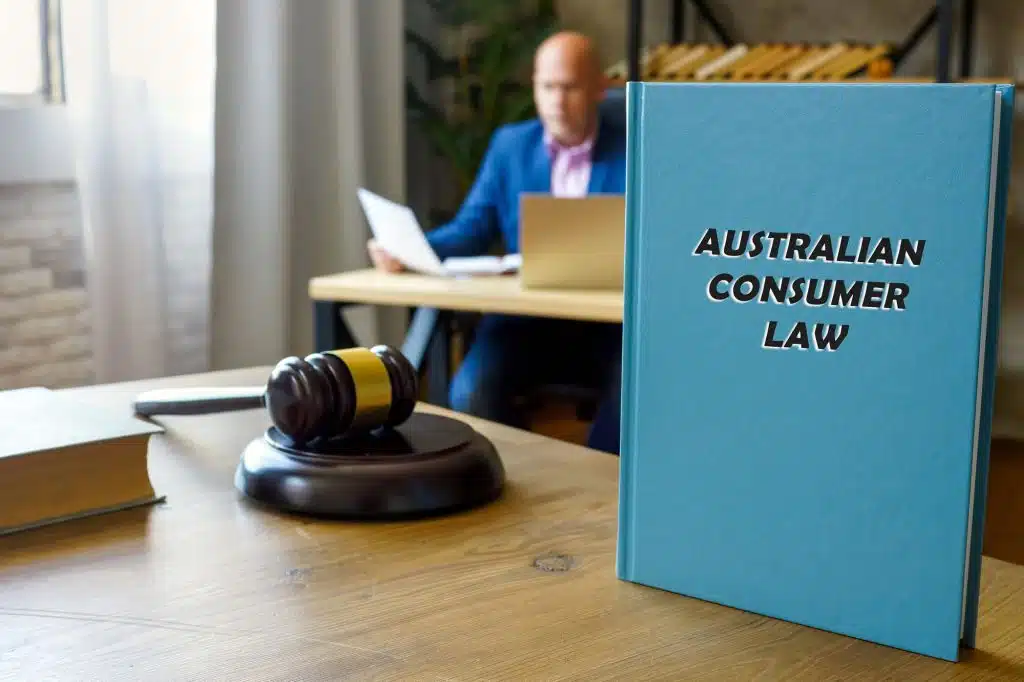The Australian Consumer Law (ACL), among other protections, establishes a national framework of guarantees designed to protect consumers and small businesses, which businesses are unable to contract out of.
Subject to the ACL, businesses must guarantee products and services that are for sale, hire or lease where the cost is less than $100,000 or over $100,000 but are normally for personal or household use. The guarantees also extend to business vehicles and trailers that are mainly used in the transportation of goods.
The guarantees under the ACL are automatic and are in addition to any other warranties or guarantees that might accompany the product.
What are the consumer guarantees that relate to goods?
The consumer guarantees that relate to the sale of goods or products require that the goods or products be of acceptable quality. Acceptable quality means that they are safe, long lasting, and able to do the things they would be expected to do. When determining whether an item is of acceptable quality, the cost and type of product is relevant.
In addition to being of acceptable quality, products must match the description made by the salesperson, on packaging and labels, within advertising or promotions or any demonstration model or sample provided. They must also be fit for the purpose for which the business stated, as well as any additional purpose that a consumer made clear to the business prior to purchasing the products or goods.
Purchase of a product must come with full title and ownership and must not carry any hidden debts or additional charges.
Remedies where goods or products do not meet the consumer guarantees
Where your business provides goods or products to customers or clients, and those goods or products fail to meet a consumer guarantee, you may be required to provide a remedy to that customer or client.
The appropriate remedy may depend on the particular failure of the goods or products. In general, if you sold the goods or products, you may be required to repair, replace, or refund the purchase price. If the failure is a minor failure, it might be appropriate for a repair to be performed. In contrast, if there is a major failure, it may be more appropriate to provide a refund or replacement.
In addition to the repair, replace and refund remedies, in some circumstances compensation may be payable to a consumer for loss or damage suffered if that loss or damage was reasonably foreseeable to the business prior to the sale.
What are the consumer guarantees that relate to services?
Where a business sells services as opposed to goods, those services must be provided with acceptable care and skill or technical knowledge, whilsttaking all necessary steps to avoid loss and damage. Services must also be fit for purpose or give the results agreed to and be delivered within reasonable time when there is no agreed end date.
Remedies where services do not meet the consumer guarantees
Remedies available to consumers where a service does not meet one of the consumer guarantees can include the cancellation of the service and, in some circumstances, compensation for damages and loss, if that damage or loss was reasonably foreseeable prior to the sale.
To avoid the cancellation of services, it is a good idea to ensure that your customers are aware not only of what it is you are selling but also what the service may not include. It is important that your clients or customers understand the cost involved in the services, so try to avoid any hidden additional charges.
Exceptions to consumer guarantees
You are not obliged to provide any consumer guarantee to a customer where they have simply changed their mind, found a cheaper price elsewhere, or decided they had no use for the product. Similarly, where a consumer misuses a product in a way that causes a problem, the consumer guarantees will not provide any remedy. There is also no protection where the consumer is made aware of the faults prior to buying a product or if a consumer asks for a service to be done in a certain way against the advice of the business.
Conclusion
Receiving a complaint about a service, product or good you have sold is stressful and unpleasant. However, how you manage the complaint process can make a huge difference, not only to whether the complaint is escalated outside of your business, but also whether the customer might use your services again in the future. Dealing with a complaint quickly, while keeping in mind your obligations subject to the consumer guarantees, as well as any other warrantees that you have provided, is key to minimising the fall out that might accompany a complaint.
Get in touch
If you or someone you know wants more information or needs help or advice, please contact us.
Related Resources
Contracts Corporations
Your business and the Australian Consumer Law – an overview
The Australian Consumer Law, or ACL, is a national law that applies to all businesses throughout Australian jurisdictions. The national law provides consistency to consumers across Australia, so that all consumers have the same rights and all businesses owe the same obligations. Where is the ACL found? The ACL is...
Read moreContracts E-commerce
Why you should read online terms and conditions
Why you should read online terms and conditions The rapid pace at which technology is progressing means more of us are ‘transacting’ in a global environment. International online contracts are common place for businesses and consumers – whether we are purchasing fashion accessories through online retail outlets, subscribing to industry-specific...
Read more



